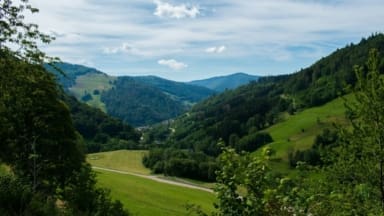
The Nature Restoration Law is a key element of the European Green Deal which outlines the targets to reverse environmental decline. The law includes the halt of pollinator population declines by 2030, restoration of peatlands, and the planting of 3+ billion trees. Importantly, the law marks a shift from conservation to actively restoring nature.
Significant opposition came from farmers (lobby groups) and various political factions, calling the law a ‘flawed proposal” that would lead to administrative burdens, high (law) implementation costs and legal battles on national, regional and European levels. The law also faced economic criticisms in that it lacked clear and consistent funding proposals for ecosystem restoration. As such, the vote was fraught and remained uncertain until the very last moments. The law was voted in with a thin 55% majority of member states – representing 65% of the EU population. Twenty countries were in favour, with Finland, Hungary, Italy, the Netherlands, Poland, and Sweden voting against. Belgium abstained.
Pivotal in the final vote by supporting the law, Leonore Gewessler, Austria’s Green climate minister, said “Today’s decision is a victory for nature. My conscience tells me unmistakably that when the healthy and happy life of future generations is at stake, courageous decisions are needed.”
According to the European Environment Agency, 81% of European habitats are in poor condition. The nature restoration law aims to address the acute decline and fulfil the EU commitments at the 2022 Montreal Biodiversity Summit. Supporters of the Nature Restoration Law believe it to be the necessary, critical step towards resolving the biodiversity crisis.
As environmental groups celebrate the landmark victory, the focus is now on implementing the new legislation. The law includes specific targets for restoring habitats and ecosystems, which will require coordinated efforts to overcome implementation (national/regional) challenges and securing the necessary funding for the various restoration projects.
Janneke de Vries, Director EU Partnerships of World Resources Institute (WRI), said: “We now have a law in place to protect the environment, to underpin healthy ecosystems for our food security, to safeguard clean water, preserve our health and to protect us against extreme weather. Following four years of divisive political debate, the law’s passage will establish ambitious climate and biodiversity targets and position the EU as a global leader on climate issues. We must now follow up with rapid action. Much of Europe is facing biodiversity collapse and the EU must ensure it meets international commitments, including those made at the Biodiversity COP15.”

